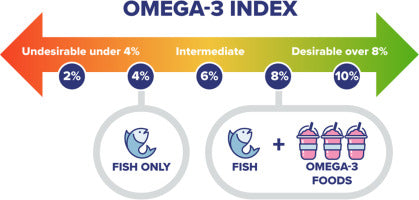Understanding Autophagy: A Deep Dive into Its Role in Aging and Health
The Basics of Autophagy
Autophagy is like our body's clean-up crew, getting rid of old cells to make room for new ones. It's a process where cells break down parts that they don't need anymore. This recycling helps our bodies work better. As we get older, autophagy may slow down, but we can help boost it with the right diet. Short fasts or a high-fat, low-carb diet, like Keto, can jump-start autophagy. This is key to staying healthy and may even help us live longer. Next, let's see how autophagy affects aging and lifespan.

How Autophagy Affects Aging and Lifespan
Autophagy plays a key role in cellular health and aging. This process removes damaged cells and helps prevent diseases. With age, autophagy efficiency declines, leading to a build-up of harmful proteins and damaged organelles. Such build-up is linked with age-related diseases like Alzheimer's and Parkinson's. Boosting autophagy may slow aging and protect against these diseases. A diet that activates autophagy could be vital for longevity. In this aspect, the Keto diet shows promise in enhancing autophagy, pointing to a worthwhile synergy for health and lifespan extension.
The Intersection of Autophagy and Dietary Choices
Your diet plays a key role in regulating autophagy. What you eat can either promote or inhibit this vital process. Certain dietary choices can encourage your cells to clean up and renew themselves, potentially slowing down aging. Nutrients from what you eat may either help or hinder cell health. Foods rich in antioxidants, for example, can support autophagy. On the other hand, eating a lot of processed foods may suppress it. Choosing the right diet can help you harness the power of autophagy for better health.
The Keto Diet and Autophagy: A Synergy for Health and Well-being
What is the Keto Diet?
The keto diet is a high-fat, low-carbohydrate eating plan. By reducing carb intake, the body enters a state called ketosis. In ketosis, fat becomes the main energy source. This diet aims to mimic fasting's effects. It forces the body to burn fat, not carbs for fuel. As cells switch to fat burning, autophagy may increase. This is due to the body's response to perceived starvation. The keto diet's unique nutrient balance supports cell health and renewal. It also aligns well with the natural process of autophagy.
The Connection Between the Keto Diet and Autophagy
The Keto Diet promotes a metabolic state called ketosis. In ketosis, cells switch to fat as their main fuel. This shift has a surprising effect on autophagy. Studies show that ketosis enhances autophagy in various tissues. It seems to help clean and renew cells. This link is key for brain health and aging. A keto diet might thus boost autophagy's benefits. These findings are a breakthrough for longevity research.
Benefits of Combining the Keto Diet with Autophagy
Combining the keto diet with autophagy can yield powerful health perks. Here is a list of benefits:
- Enhances Cellular Repair: The state of ketosis intensifies autophagy, boosting cell renewal.
- Boosts Brain Health: This combo may protect the brain from disorders like Alzheimer's.
- Reduces Inflammation: Autophagy removes damaged cells, reducing inflammation linked to chronic diseases.
- Weight Management: Ketosis aids in fat loss, while autophagy recycles cellular waste, supporting healthy weight.
- Improved Metabolism: A ketogenic diet can ramp up metabolism, while autophagy optimizes cell function.
Adopting this lifestyle could be a game-changer for long-term wellness.
Implementing Autophagy and Keto Diet Strategies for Optimal Health
Key Considerations for Starting the Keto Diet
Starting a keto diet demands attention to detail. Here are a few points to consider:
- Educate Yourself: Learn about keto basics and how it drives autophagy.
- Consult a Professional: Talk with a healthcare provider before embarking on keto, especially if you have existing health conditions.
- Monitor Nutrients: Ensure you're getting enough vitamins and minerals, as a high-fat, low-carb diet can lead to deficiencies.
- Plan Your Meals: Preparing keto-friendly meals ahead of time can help you stick to the diet.
- Stay Hydrated: Increase your water intake to help your body adapt to ketosis.
- Track Progress: Keep a food diary and note any changes in your health and wellness.
Tips for Maintaining Autophagy in Your Lifestyle
Maintaining autophagy in your daily life can be a stepping stone to better health. Here are tips:
- Fast Intermittently: Brief fasting periods can trigger autophagy. Start with a simple 16/8 approach.
- Eat Autophagy-Promoting Foods: Include foods like green tea, turmeric, and berries.
- Exercise Regularly: Physical activity, especially high-intensity workouts, can boost autophagy.
- Get Enough Sleep: Aim for 7-9 hours of quality sleep. It helps in cell repair and autophagy.
- Manage Stress: Stress can hinder autophagy. Try meditation or yoga to keep stress in check.
- Follow a Keto Diet: A low-carb, high-fat diet induces ketosis, which supports autophagy.
Adopt these habits into your lifestyle for improved cell health and vitality.
Measuring the Impact of Keto and Autophagy on Your Health and Brain
Tracking the effects of keto and autophagy on health is vital. There are several ways to monitor changes. Look for cognitive function improvements and overall energy levels. Regular health check-ups can reveal internal progress. Blood tests show changes in biomarkers linked to aging and brain health. Advanced imaging can spot brain structure changes due to diet. Keeping a journal can help you notice subtle shifts in well-being. With commitment, you can see the benefits of these combined approaches on your body and mind.




